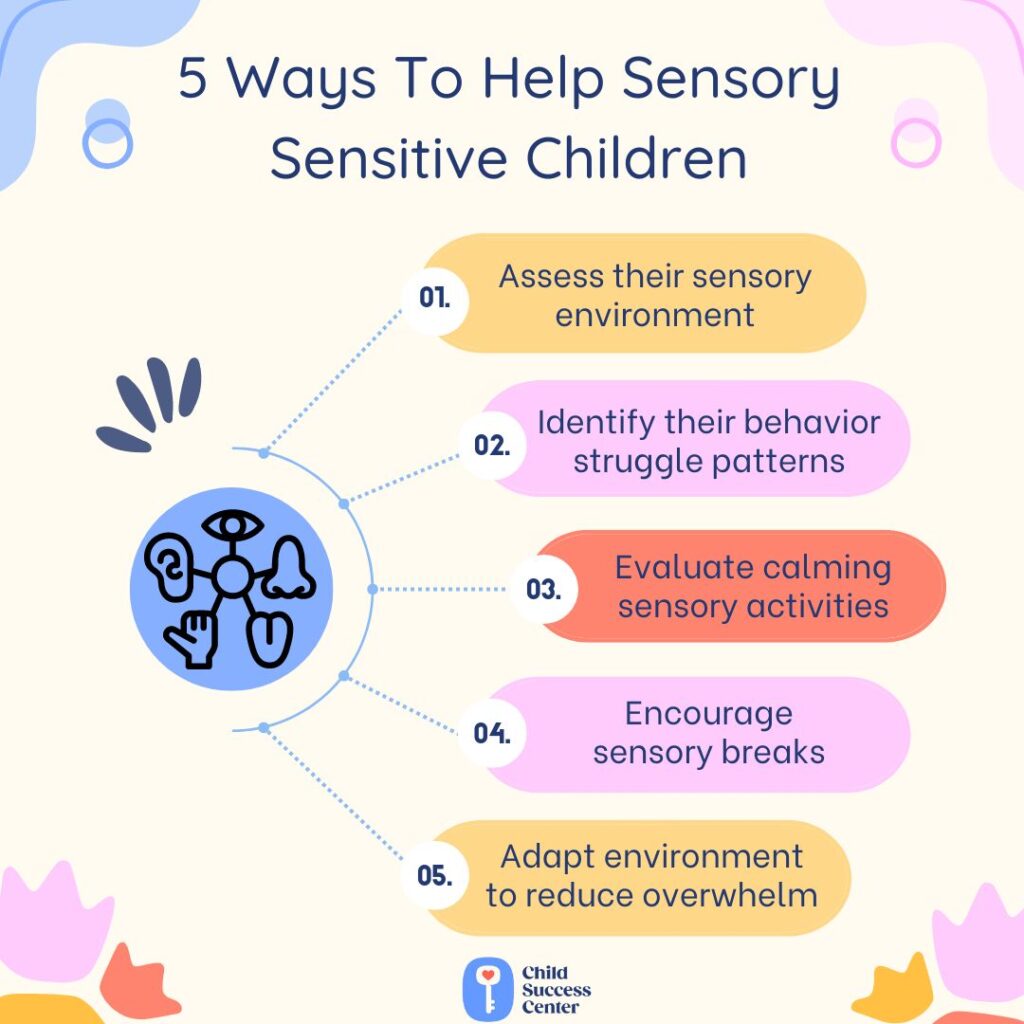Self-Regulation and the Sensory Child
- Behavior|
- Occupational Therapy|
- Sensory Processing|
- Speech Therapy

Helping Your Child Stay Calm and Focused – A Parent’s Guide
As parents, we’ve all seen our kids get sensory overwhelmed by the world
around them. Sometimes, it’s hard for children to process all the
sights, sounds, and feelings they experience. When this happens, they
might have trouble staying calm and focused. Let’s explore some ways
we can help our kids manage these challenges.
Understanding How Kids Process the World
Every child experiences the world differently. Some kids might be
extra sensitive to loud noises, while others might not like certain
textures. This is all part of how they process sensory information –
what they see, hear, feel, smell, and taste.
When kids struggle with sensory processing, they might react
in ways that seem out of proportion. They might have meltdowns or
become anxious. It’s not because they’re being difficult – their
brains are just working hard to make sense of everything around them.
Simple Strategies From Occupational Therapists to Help Your Sensory Child
Here are some easy ways to help your child when they’re feeling sensory overwhelmed.
Give them a big, comforting hug
Create a quiet, cozy space where they can relax.
Practice deep breathing together.
Encourage physical activities like pushing a shopping cart or carrying
a backpack.
Try calming activities like yoga or swimming.
Remember, what works for one child might not work for another. It’s
all about finding what helps your child feel comfortable and in
control.
How Speech Therapy Can Help with Sensory Processing
Speech therapists don’t just help with verbal communication, they also support a child’s sensory processing abilities by teaching kids how to:
Express their feelings and needs more clearly
Employ learned strategies to stay calm when upset
Act out different emotions with stuffed animals or toys
Find different ways to communicate when they’re struggling
Our therapists support parents as well, by working collaboratively to create a supportive home environment and teaching fun ways to “practice” sensory processing at home. Those ways include:
Reading books about feelings together
Using games or apps that teach about emotions
Having open conversations about feelings as a family
Make talking about emotions a fun, regular part of your day
By helping your child understand and manage their feelings, you’re
teaching them valuable skills for life. These skills will help them:
Make friends and get along with others
Solve problems
Work well in teams
Handle new situations
Feel more confident in school and beyond
As your child grows up, these skills will help them manage stress,
build strong relationships, and succeed in their future careers.
At Child Success Center, we’re here to support you and your child on
this journey. Our team can provide personalized strategies to help
your child feel more comfortable and confident in their daily life.
Remember, every child is unique and develops at their own pace. By
understanding and supporting your child’s needs, you’re helping them
build a strong foundation for a happy, successful future. If you need guidance or support, don’t hesitate to reach out to us at Child Success Center. We’re here to help!

